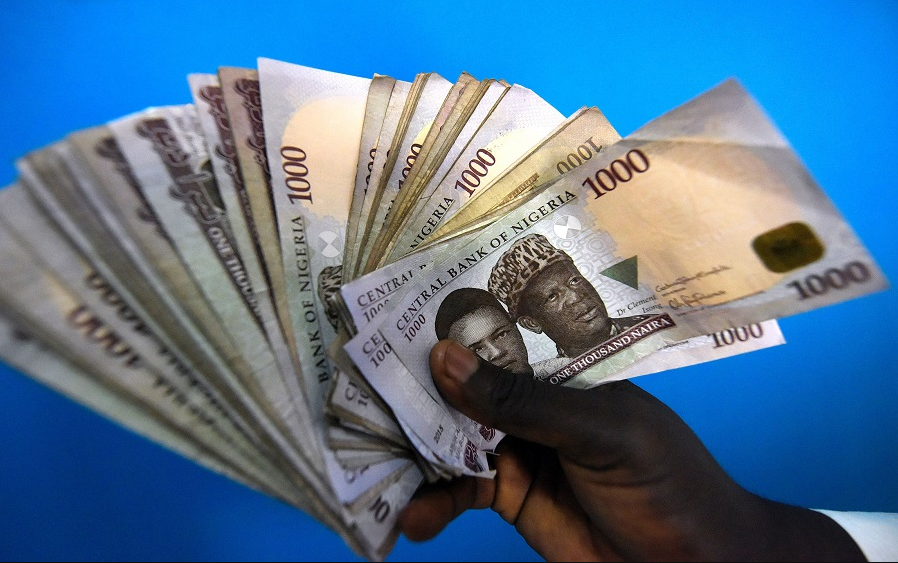Nigeria’s broad money supply (M3) has surged to a new historic high of N95.56 trillion as of February 2024 despite the hawkish tightening stance of the Monetary Policy Committee (MPC).
This figure represents a staggering 79.29% surge from the N53.3 trillion recorded in February 2023, showcasing a substantial year-on-year growth of N42.26 trillion.
Moreover, compared to the preceding month of January 2024, which stood at N93.72 trillion, this represents a 1.96% increase, equivalent to N1.84 trillion. The Central Bank of Nigeria (CBN) revealed this data in its latest money and credit statistics.
Nigeria’s Money Supply (M2) also hit historical high of N93.9 trillion in February from a record N92.8 trillion established in January 2024
The trajectory of Nigeria’s broad money supply (M3), a pivotal gauge of economic liquidity, has been on an undeniable upward trajectory, surging at an accelerated pace in recent years.
- M3 encompasses both net foreign assets and net domestic assets, painting a holistic picture of the nation’s monetary dynamics. It is also M1 plus CBN bills.
- M2 represents currency outside banks plus demand deposits and quasi money (investments)
Why does this matter?
Ms. Emem Usoro, Deputy Governor, Operations Directorate, in her personal statement at the previous MPC meeting in January 2024 noted that:
- “Notably, broad money and inflation have moved almost in tandem as broad money supply (M3) expanded by 18.25% at the end of January 2024. This growth was ascribed to a rise in other deposits, transferable deposits, and securities other than shares, by 26.55%, 4.73%, and 99.98%, respectively.
- “From the asset side, Net Domestic Asset (NDA) contributed significantly to broad money growth while Net Foreign Asset (NFA) subdued growth in broad money. The steady rise in inflation has resulted in negative real interest rates.”
She also said that inflationary pressures may persist in the near term partly due to a number of factors, such as the lingering impact of PMS adjustments, import costs, exchange rate passthrough, and growth in money supply.
The uptick in the money supply portends a potential surge in inflation, posing a significant threat to the purchasing power of Nigerians.
- Moreover, an inflated money stock typically correlates with a decline in interest rates, particularly in environments characterised by a dearth of viable investment prospects.
- This dynamic may render Nigerian investment vehicles less attractive to global investors, a matter of grave concern considering Nigeria’s imperative for sustained dollar inflows.
More Insights
While there has been a significant surge in the money supply, the country’s economic growth has been tepid, with Nigeria’s economic growth rate for 2024 projected to be around 2.9% and 3.1%, having one of the slowest growth rates in West Africa.
- The disparity is stark – the money supply is growing much faster than the economy.
- Inflation has been a significant concern, with the headline inflation rate jumping 31.70% in February 2024. Although the rate is projected to drop to 21.5% this year, it may end up peaking at 44% if adverse economic conditions persist.
At the CBN’s first Monetary Policy Committee (MPC) meeting for 2024, the monetary policy rate (MPR) was increased by 400 basis points, elevating it to a historic high of 22.75% to combat inflation and foster economic stability.
- This pivotal adjustment signifies a major shift from the previous rate of 18.75%, which had been in effect since the MPC’s meeting on July 24th and 25th, 2023.
- The announcement, made by CBN Governor Yemi Cardoso, highlights the central bank’s proactive approach towards monetary tightening amidst challenging economic conditions.
- This unprecedented move has not only set the MPR at its highest level to date but also reflects the CBN’s determined effort to address the persistent economic pressures.
The decision has garnered praise from the International Monetary Fund (IMF), which commended the MPC’s resolve to tighten monetary policy further by increasing the policy rate to 22.75%.
- Such a strategic manoeuvre aims to curb the inflation surge, and to mitigate the depreciative pressures on the naira. Since May 2022, this has accumulated to a total policy tightening of 1,025 basis points, showcasing the CBN’s commitment to restoring macroeconomic equilibrium.
- Notably, this increase in the broad money supply comes despite the CBN’s efforts to tighten monetary policy and mop up excess liquidity.
- A member of Nigeria’s MPC, Murtala Sabo Sagagi, recently said that the underlying structural issues within the Nigerian economy significantly hinder the traditional monetary policy tools from achieving desired outcomes on inflation control.
The second MPC meeting under Cardoso is ongoing, and it is expected that the implications of this expanded money supply on their deliberations, particularly regarding the MPR, are poised to take centre stage.
